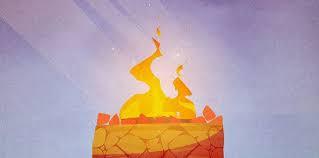Vows Concerning Animal Sacrifices
27: 9-13
Vows concerning animal sacrifices DIG: What is the difference between a ritually clean and unclean animal? What do you see as the purpose of these vows concerning animal sacrifices?
REFLECT: What is something you have personally given to the Lord? Have you ever wanted it back? At what cost? How is this similar to things dedicated here in this chapter?

If the vowed animal was ritually clean (to see link click Bk – Ritually Clean and Unclean Animals), the Israelites could not exchange it (give an animal of a different type) or substitute it (give an animal of the same type). It would have been especially tempting to substitute sick or deformed animals of a lesser value (a bad one for a good one), as did the people in Malachi’s day. From farthest east to farthest west my name is great among the nations. Offerings are presented to My Name everywhere, pure gifts; for My Name is great among the nations,” says ADONAI-Tzva’ot. But you profane it by saying that the table of ADONAI is polluted, so that the fruit and food offered deserve contempt. You also say, ‘It’s all so tiresome!’ and sniff scornfully at it,” says ADONAI-Tzva’ot. “Then you bring animals that were taken by violence, or they are lame or sick. This is the sort of offering you bring. Am I supposed to accept this from you?” asks ADONAI. “Moreover, cursed is the deceiver who has a male animal in his flock that is damaged, but vows and sacrifices to ADONAI anyway. For I am a great king,” says ADONAI-Tzva’ot, “and my name is respected among the nations (Mal 1:11-14).
Vowing animal sacrifices (27:9-10): Animals could also become candidates for vows. If a ritually clean animal was vowed, it could not be exchanged for another animal. If what he vowed is an animal that is acceptable as an offering to the LORD, such an animal given to God becomes holy (meaning that it was now God’s). If the offeror tried to substitute an inferior animal, the penalty was very high – then both animals were to be given to God. He must not exchange it or substitute a good one for a bad one, or a bad one for a good one; if he should substitute one animal for another, both it and the substitute become the property of the priesthood.
Vowing an unclean animal (27:11-13): Vows concerning animals harmonizes with the rest of Leviticus because the distinction between ritually clean and unclean animals affected the ruling. If a ritually unclean animal (for example the one that was disqualified from sacrifices in 22:20-25) was vowed to the LORD, it could be redeemed for the fair market value plus an additional twenty percent. The animal had to be brought to the priest to judge if its quality was good or bad.545 If what he vowed is a ritually unclean animal (like a donkey), one that is not acceptable as an offering to ADONAI – the animal must be presented to the priest, who will judge its quality as good or bad. The assessment of the priest was final, even if it exceeded the fair market price for the animal. At that point, the animal became the property of the priesthood, but the original owner had the right to redeem it. If the person wants to redeem it, whatever value the priest then sets, that is what it will be. If the owner wishes to redeem the animal (perhaps because it was well trained), he must add a fifth to its value. The addition of twenty percent was probably to discourage the Israelites from taking such vows lightly.546 Therefore, a ritually clean animal could not be redeemed, but since ritually unclean animals are never fit for sacrifice, they were always redeemable.
Dear Heavenly Father, Praise Your great “chesed” steadfast love. Yeshua fell face down and prayed, saying: My Father, if it is possible, let this cup pass from Me! Yet not as I will, but as You will (Matthew 26:39). Knowing the terrible suffering He would have to endure to take the punishment for the sins of the world as the Lamb of God (John 1:29), Messiah prayed again for the Father saying: My Father, if this cannot pass away unless I drink it, let Your will be done. And He prayed a third time, saying the same words once more (Matthew 26:42, 44c). Father, You knew how exceedingly horrible the crucifixion would be, yet Your matchless mercy and grace allowed Yeshua to go thru with the suffering. Yeshua could have backed out, but I worship You for your selfless love that knew You could not be redeemed . . . for no one else could bear the sin punishment for those who love You. What immense love! I want to thank You with my life of love for what you have suffered in my place on the cross. I desire to live totally for you in all I do, say and think. I look forward to living with You in heaven for all eternity where I will continue to praise You forever! In Yeshua’s name and power of His resurrection. Amen



Leave A Comment